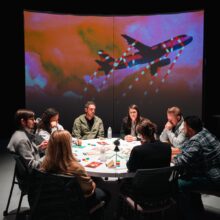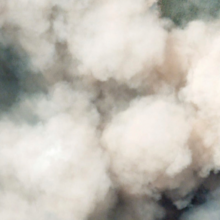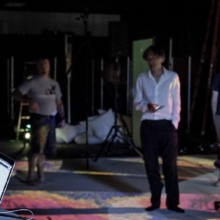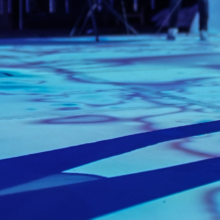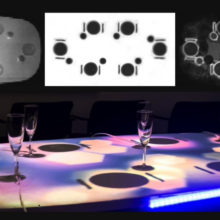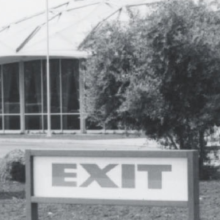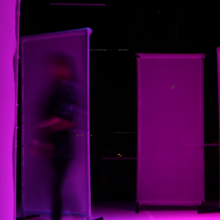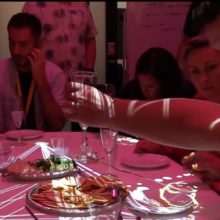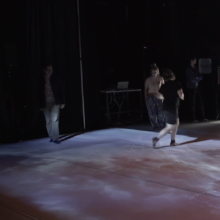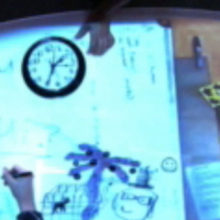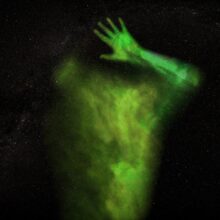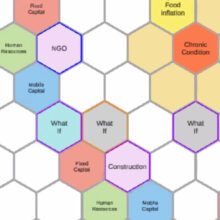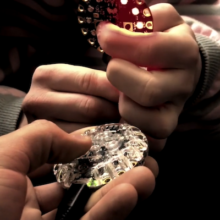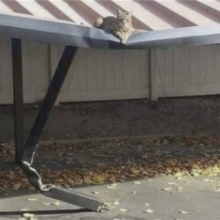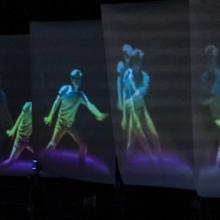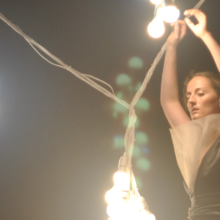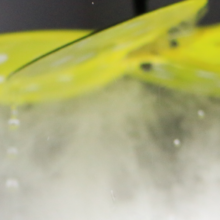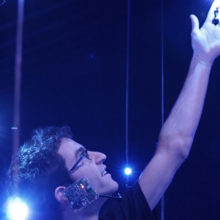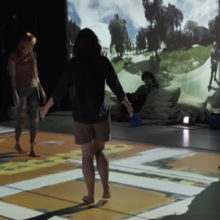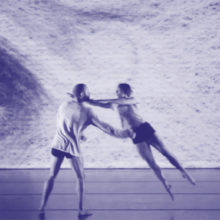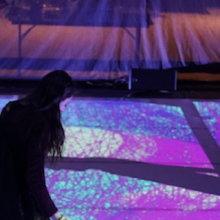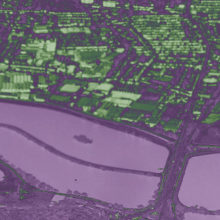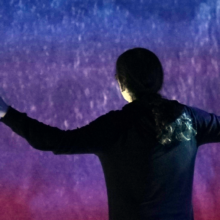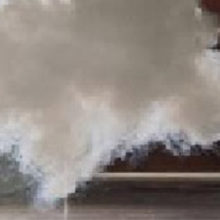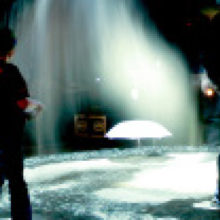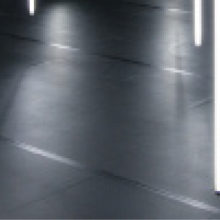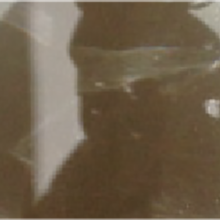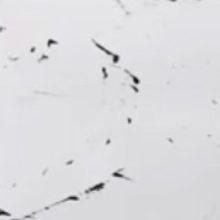Research Streams
Experiential Science
In this stream we study how people can directly and palpably tinker with or steer the most complex scientific simulations to learn about the world. We leverage 15 years of pioneering work with realtime gestural media and responsive environments to create scientific tools, instruments and whole immersive environments that let inhabitants steer otherwise inaccessibly complex models via embodied interaction and rich media feedback in realtime. Our guiding assumption is that these techniques combined with rich narrative tools greatly speed and scale up the generation of hypotheses and theories for testing with advanced (and expensive) instrumentation. This will reduce the cost of conducting big science and also provide a play space for creating alternate imaginaries. The Atmosphere and Place residency kicked off the development of a prototype system that allows a person to corporeally engage with a computational model of fluid dynamics used to approximate a layer of atmospheric activity, showcased in the 2015 Conference on Complex Systems.
Movement and Change
We extend state of the art work with movement and time-based media to explore how the sense of dynamic, change, and rhythm shapes and intertwines the processes of life, city, industry, with processes of nature at multiple time scales. We will contribute to urban design and the resilience of future cities across the globe. We compare temporal phenomena via notions of rhythm as a way for people with otherwise incommensurate vocabularies and methods to compare insights about movement and change in experiential, built and natural environments, phenomena for which we lack neat theories.
The Life of Stuff
Mathematicians, like artists, do not measure or count bits of “nature” – they imagine and propose “what if?” Whereas biology is about the stuff of life, mathematic art and design can be about the life of stuff, like sound, light, movement, song, affect or software. In this research stream we alloy computational media arts and sciences with propositions about process, performativity and embodiment unframed from theater, music, dance, martial arts to create fresh modes of expression for our dynamic age. Sidestepping linguistic and static representation, we can coordinate expressive movement in concert with media.
The Heartbeat residency explored these themes by studying the articulation of a dancer’s internal rhythm with the movement of a group of accompanists. We are hosting studies of how ensembles of rehearsed and un-rehearsed people correlate their actions non-verbally in physical space.
Experimental Fusion Practices and 21c Diplomacy
Another stream is to explore alloying disciplinary strengths via expanded kinds of experimental practice and reflection. In this capacity we participate in a larger conversation about what research is within a practice-based college, and how can we incorporate concepts from process and complexity, and practice-based methods into the textually oriented humanities. We challenge ourselves to think engineering and science beyond tools and gadgets, while leveraging the unique critical practices of humanities and the arts. We are building networks of disciplinary evaluators to help us conduct a longitudinal study of the transformation of disciplinary practices under such syntheses.







